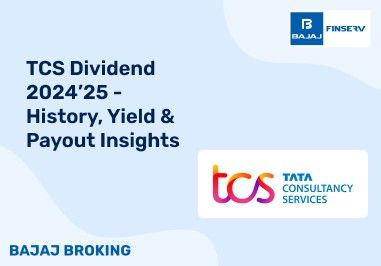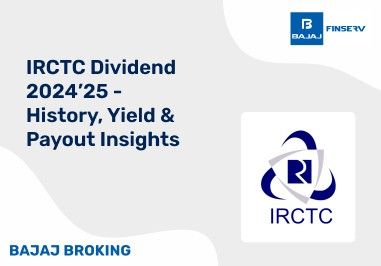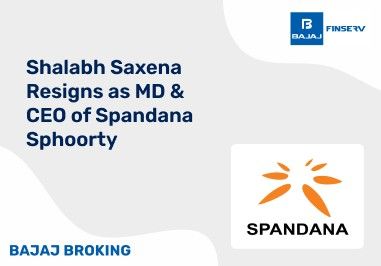As an investor or someone with a developing interest in the stock market, you must have come across the term Asset Classes. If you wish to bring some positive changes to your financial portfolio or want to get to the bottom of what are asset classes, then this read is just for you.
Before we dive into understanding asset classes in detail, know that asset classes, at the base level, are a group of investments that share the same characteristics and are governed by the same set of rules and regulations.
Understanding the Meaning of Asset Classes
Asset classes refer to a group of financial securities or investments. These investments are put in a grouping format simply because they are governed by the same rules and regulations of the stock market, thus making it easy for you to gauge the movement.
You must have encountered equities, fixed-income bonds, mutual funds or money market investments while exploring the stock market. These are all different types of asset classes.
Remember that the movement of stocks under an equity you own will showcase identical traits but the movements between one type of asset class will differ from a different type of asset class.
Additional Read: What are Dual-Class Shares?
Types of Asset Classes
Now that you have a fundamental awareness of asset classes meaning, Let’s move ahead with the types of Asset Classes:
Owning an equity share in a company reflects your percentage of ownership in the company. Equities are offered by a company to raise capital for expansion in return for selling slices of the company’s ownership.
Fixed income is regarded as one of the safest investment options in India. Under this, you invest/lend money to an entity and in return, they provide you fixed return periodically with an interest until the maturity date. Public Provident Funds and Fixed Deposits are the most common examples of fixed-income investments.
Investments made in apartments, flats, plots and related areas come under real estate. This type of investment has existed since eternity but has gained popularity with the launch of Pradhan Mantri Awas Yojana.
Commodities investments are those investments that are made by putting money in goods like gold, silver, agricultural produce, petroleum and so on. Commodity exchange is a type of investment that is directly impacted by market demand and is often considered a great hedge against inflation.
Importance of Asset Allocation
Asset allocation, simply put, talks about diversification. You distribute your investment to different types of assets like gold, bonds, funds etc. Asset allocation is a key strategy used by investors to create a strong and diverse investment portfolio. Here’s how a smart asset allocation strategy can help you:
Optimal Return
Risk Minimisation
Stable Returns
Peace of Mind.
How to Choose the Right Asset Classes for Your Portfolio?
Every investor in the stock market has a different pattern and strategy, making it uncertain to put out a set strategy that will help you choose the right asset classes. However, to give you a headstart, here’s how you can approach it:
As an investor, it is crucial that you first paint a clear picture of your goals. For instance- Do you want to invest to build a retirement plan? Or an investment that will fund your kid’s education? This will help you choose an asset class wisely, depending on the short-term or long-term returns.
There are different types of asset classes, as we discussed above. Each type of asset class comes with varying returns. To put it simply, commodities investment is a kind of swing investment where you buy and sell frequently as per market demand, whereas a fixed income is a long-term strategy. So, make sure you first understand the movement of these asset classes.
Lastly, you must evaluate your risk appetite. This helps you follow a discipline and ensures protection against emotional investments. This simple goal is to invest only when you have an appetite to bear the losses.
Asset Class and Investing Strategy
Just like any other investment you make in the stock market, asset-class investment also requires you to have a reliable strategy. Take a look at these investing strategies that can help you deal with market volatility:
Research the Market
Diversify your investment portfolio
Choose an asset class that matches your investment goals
Create a solid risk management plan
Perform Due Diligence
Apart from these, asset class investment also allows you to make passive investments, Index Fund Investments and follow buy & hold methods to create a strong asset class investment portfolio.
Additional Factors in Classifying Assets
Here’s how you can easily classify asset classes to make an informed choice while putting in your money:
Liquidity fundamentally talks about the ease of encashing an asset. There are several types of assets in the stock market that can not be liquidated easily. The simplest way to understand the liquidity of an asset is by evaluating the ease of it being bought and sold in the market. For instance- Equities are not frequently bought or sold in the market making them a less liquid asset while highly-traded stocks are easily liquidated.
The risk associated with an asset refers to the chances of it facing a loss. While assets with high risk provide greater returns, the loss is heavy too.
The minimum amount that you are required to put in an asset as an investment is the investment size of an asset. Equities often have a higher investment size whereas stocks or penny shares allow you to enter even with a small amount.
Market volatility affects asset classes, as well. To classify asset classes you can evaluate its volatility i.e. the impact of market movements on its value. Assets with less volatility provide steady but stable returns. On the other hand, a highly volatile asset might offer bigger profit margins but comes with risks as well.
Alternative Asset Classes
Now that you are familiar with the types of asset classes, you might find yourself wondering, are these the only types of asset classes available?
There are several other options available that often come under the category of alternative asset classes. These do not come under traditional assets like stocks, bonds and funds mostly because the chances of liquidity is lesser.
Take a look at alternative asset classes that can bring a positive investment opportunity:
Collectables- Wine, stamps, fine art, vintage cars and more.
Private Equity- Equity owned by companies that are not listed on the stock market exchange.
Private Debt- This allows you to lend money to companies for expansion in return for competitive interest rates.
Hedge Funds- Pool of money taken from different investors to invest in stocks and other securities.
Apart from these, you would want to explore private debt and structured products as well to decide on a reliable alternative asset class.
Asset Classes and Diversification
Diversification is a common practice amongst investors that helps them enhance their investment portfolio by spreading their money across different types of stocks and securities.
Similarly, asset class diversification is a strategy using which you can put your money in different asset classes rather than putting all your money in a single asset class. This helps you stay afloat even when the prices of one asset class go down. Here’s how you can diversify your asset-class investments:
Make sure you have an understanding of different types of asset classes first, this plays a key role in understanding where you want to put your money.
The sole goal of asset class diversification is to create an investment portfolio that keeps you stable even when one asset is facing a negative movement. The simplest way to achieve this is by investing in asset classes that stand with negative correlations i.e. asset classes that do not belong to the same category and are not influenced by the same factors.
Asset Allocation and Risk Tolerance
Asset Allocation is the process of smartly dividing your surplus investment pool into different types of assets to ensure protection against fluctuating market prices. This is a reliable strategy that helps you stay stable even when one asset class is facing a downhill movement.
However, just like any other investment, understanding risk tolerance while asset allocation is crucial. Risk tolerance talks about your risk appetite i.e. the level of risk you can easily handle.
Risk tolerance and asset allocation are mutually inclusive. To make it simple, if your risk tolerance is high you can put your money in different types of asset classes, making it important for you to evaluate and factor in your risk tolerance.
Conclusion
Before you leave, remember that asset classes are of vital importance for you to make smart choices in the stock market. They help you provide a reliable framework and in addition, asset classes make for reliable choices if you are a beginner.
If you have reached here, you have cleared everything you needed to know about asset classes meaning. Choose a reliable trading platform like Bajaj Trading and start your journey towards becoming a successful trader.
Disclaimer: Investments in the securities market are subject to market risk, read all related documents carefully before investing.
This content is for educational purposes only. Securities quoted are exemplary and not recommendatory.
For All Disclaimers Click Here: https://bit.ly/3Tcsfuc













